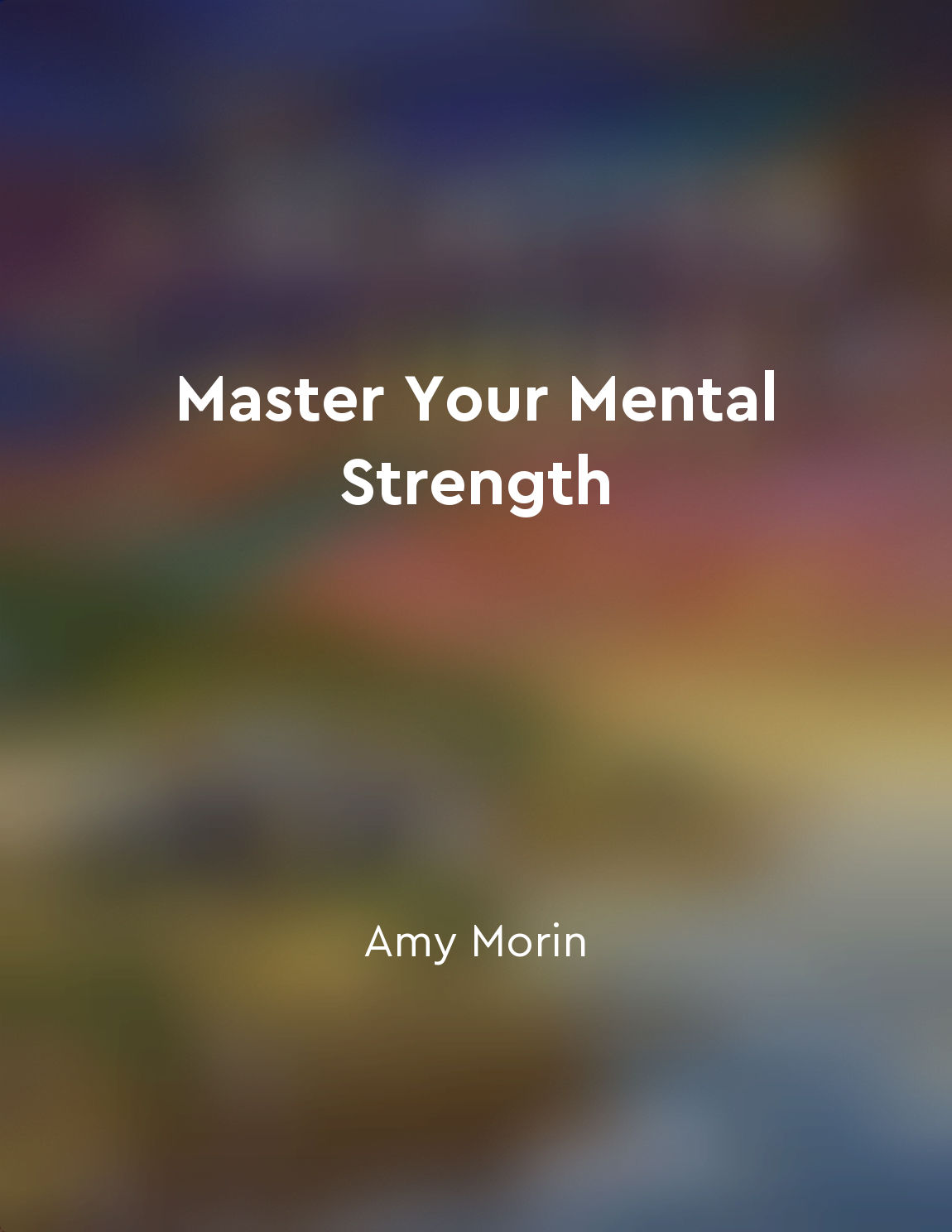Develop coping strategies for anxious moments from "summary" of The Mindful Way through Anxiety by Susan M. Orsillo,Lizabeth Roemer
When faced with anxious moments, it is important to have effective coping strategies in place. These strategies can help us navigate through challenging situations with greater ease and resilience. One key aspect of developing coping strategies for anxiety is to first acknowledge and accept our feelings of anxiety. By being aware of our emotions and accepting them without judgment, we can begin to respond to them in a more constructive manner. One helpful coping strategy is to practice mindfulness. Mindfulness involves paying attention to the present moment without judgment. By focusing on our breath, bodily sensations, or our surroundings, we can bring our awareness back to the present and away from anxious thoughts. This can help us reduce the intensity of our anxiety and create a sense of calm. Another effective coping strategy is to challenge negative thinking patterns. Often, our anxious thoughts are based on irrational beliefs or distorted perceptions. By questioning the validity of these thoughts and looking for evidence to support or refute them, we can gain a more balanced perspective on the situation. This can help us reduce the power that our anxious thoughts hold over us. In addition to mindfulness and cognitive restructuring, engaging in self-care activities can also help us cope with anxiety. Taking care of our physical health through regular exercise, healthy eating, and sufficient sleep can contribute to our overall well-being and resilience. Engaging in activities that bring us joy and relaxation, such as spending time in nature, practicing hobbies, or connecting with loved ones, can also help us manage our anxiety. It is important to remember that developing coping strategies for anxiety is a process that takes time and practice. By consistently applying these strategies in our daily lives, we can gradually build our resilience and ability to cope with anxious moments. With dedication and perseverance, we can cultivate a sense of inner strength and calm that can help us navigate through life's challenges with greater ease.Similar Posts

Embrace the process of personal growth and transformation
When you embark on the journey of personal growth and transformation, you are essentially committing to a path of self-discover...
Develop emotional regulation skills
Regulating your emotions is crucial for your mental health. When you develop emotional regulation skills, you are essentially l...
Mindful communication involves active listening and empathy
Mindful communication is a practice that involves two essential components: active listening and empathy. Active listening mean...
Set boundaries to protect your time and energy
Setting boundaries to protect your time and energy is crucial to your overall well-being. When you allow others to encroach upo...
Treatment should address both addiction and underlying issues
The treatment of addiction is complex and multifaceted. It is not enough to simply address the addiction itself; one must also ...
Challenge your inner critic and cultivate selfworth
The inner critic is like a little voice inside your head that constantly puts you down, telling you that you're not good enough...
Creating a fear hierarchy helps prioritize exposure exercises
To effectively treat anxiety disorders, it is essential to systematically address the patient's fears and anxieties. One way to...

Trust in your ability to navigate challenges
Believing in yourself is a vital part of facing challenges. It means having confidence in your own abilities to handle difficul...

Strengthen your boundaries for selfprotection
Establishing healthy boundaries is essential for protecting your mental strength. Boundaries are like a personal shield that he...
It is a testament to the power of the human mind
This concept highlights the remarkable capabilities of the human mind, showcasing its immense power and potential. It serves as...
